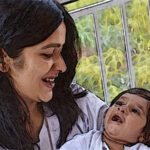The feminist movement’s loudest slogan that the personal is political has echoed in many forms and interpretations across feminisms. The discourse around the provocative expression opened doors for critical engagement in the areas of life that were overlooked for being intimate and private. It also led feminists to rethink how politics can be understood, whether private or public.
My encounter with the slogan left me with two questions at the outset – if there is a need to foreground the personal or private as being political, is the ‘public’ already political? Secondly, is the public-political distinct from the personal-political?
Scholarship on the slogan unmasks a primary assumption underlying my questions – the public-political precedes the private-political. The assumption may have resulted from the way in which what constitutes politics reaches us. While attempting to trace counter-heteronormative movements in India, Menon (2007) writes that the 1990s were a period where the narrativising of counter-heteronormative practice became more visible to the public. She clarifies that this does not mean that heteronormativity only began to be questioned in the 1990s or that practices countering it did not exist earlier. The difference, however, is in how these practices got narrativised and written into history to be recognised as counter-heteronormative praxis. Therefore, whether recognised as political praxis or not, “People in their everyday practices have lived for centuries as individuals and in communities, overtly or covertly violating dominant norms” (Menon, 2007, p. 4).
The second question of a distinction between the public-political and the personal-political is more complex, where the gap appears to be at the juncture of ‘doing’ politics. Writings from the Indian women’s movements of the 1980s illustrate some of these gaps where the public discourse of the movement has been incongruent with the intimate conversations that happened within groups, especially regarding questions of marriage, family and the home. Chayanika Shah writes of such intimate groups within larger movements understood to be safe and ‘personal’ spaces, allowing for conversations about the different lives they were leading. Shah recalls,
We critiqued the family and, many of us, in our personal lives questioned the institution of marriage (even though many of us entered it with the hope of bending its rules backward and forward). In intimate conversations, we spoke of openness of all kinds in relationships and of all the kinds of relationships that people experienced (Shah, 2005, p. 144).
Similarly, reflecting on feminist dialogues within movement spaces in the same period, Mary John writes, “Within small groups, among friends, or even in solitude, we passionately struggled over questions related to sexual experiences, love, relationships, monogamy, the institution of marriage, having children, saying no to marriage, remaining single” (John, 2005, p. 714). Despite the internal conversations within the private-political spaces contesting normative marriage and family, it rarely reflected in the public discourse of the movements of the time. Moreover, the primary public-political engagement with marriage and family in these movement spaces was centred around addressing the violence within these institutions. This meant that there was very little engagement in the doing or praxis of the political in the personal, beyond the intimate sharing of experiences.
I tried to further understand the complexity of the personal and the political in my M.Phil. work in which I engaged with the non-normative homes of women who have been part of political movement spaces. The engagement intended to explore how non-normative homes were understood, created and sustained. At the outset, the women who consented to participate in the study identified their homes as non-normative and meanings of non-normativity were derived from conversations on the inherited forms of normativity from structures of gender, caste, religion and compulsory heterosexuality. This meant that non-normativity was not defined by gender, caste, religion and compulsory heterosexuality but was understood to be a process as part of their political praxis of critiquing what was normative to their life.
In the process of building non-normative homes and families, the participants have been critically reworking how they think, speak and embody within their family and home. Resultantly, language plays a vital role in naming or resignifying existing terms to how one is in relation to another. For instance, it was common among all the participants to address their natal families as ‘family’, but not everyone used the term to identify their non-normative units. This was often a result of associating ‘family’ with the violence and oppressive practices experienced in (normative) natal homes and the desire to separate their non-normative units from such an understanding. On the other hand, many participants preferred to identify their non-normative units as ‘home’.
Participants have also recycled prescribed terminologies to address members of the non-normative unit instead of traditional terms as a way to mark a shift from a normative understanding of familial roles. For instance, words like ‘husband’ and ‘ wife’ were expressed as repressive with the burden of roles that the participants were intentionally critical of in their units. The common ways of addressing the members of the non-normative unit included their names, versions of it, or terms like partners, friends and co-travellers.
There was the exception of a transfamily1, which, albeit didn’t reside in the same space, identified a Whatsapp group of its members as their non-normative family. The group, named ‘our family’, consisted of members who refer to normative terminologies of mother, daughter, and son-in-law to address one another. The participant explains that the historical denial of conventionally understood normative families makes their attempt at reclaiming it through language a non-normative practice – a way of her doing the political in the personal.
Elizabeth Freeman (2007) writes that the lack of terminologies and conceptual engagements with associations outside of the normative forms of kinships leads to the sourcing of terminologies from the normative lexicons based on heteronormativity and capitalism. There is also the influence of the popular affirmation that the true form of association is the one that tends towards the traditional kinship based on production and reproduction as a “recognizable family form” (Butler, 2002, p.14). Judith Butler adds that the manner of borrowing from traditional kinship, even if it is symbolic allocation, may also sometimes be attributed to the need for legitimising associations to sustain in some folds of material reality.
Whether it is resignification or usage of prescribed terminologies, it becomes important to note that naming does not automatically shift the workings of power in social relations. Shifting terminologies becomes a pertinent strategy to identify hierarchies within the family, often based on gender, age, ability, and bloodline, that determine the role of the member within and outside the unit. As Gopal Guru (2017) argues, the experience of reconfiguring space is often seen with the revision of the language in relation to the space. This building of a new language is “necessary to intensify the experience, both spatially and intellectually” (Guru, 2017, p.74).
The processes of building these non-normative homes and families for the women who are members of political movements hence comprised continuous contextual strategies deployed in the everyday, in critical engagement with prescribed normativity. Moreover, all the participants speak about how this praxis has emerged from their own life experiences, which may or may not have acquired conceptual vocabulary from political movement spaces. This brief exploration of the distinction between the personal and the public political, however fraught, directed me to the significance of understanding praxis, where doing the political entails the critical examination of personal everyday life in relation to the ‘public’ political world.
1 Transfamily is a term that the participant uses to refer to the unit of primarily transgender persons who have found an intimate community together. She says, “The family has always been no hope for transpeople” indicating that neither the normative family nor the imagination of the hijra family encountered by her has been experienced as inclusive and safe (Maddali, 2020).
References



